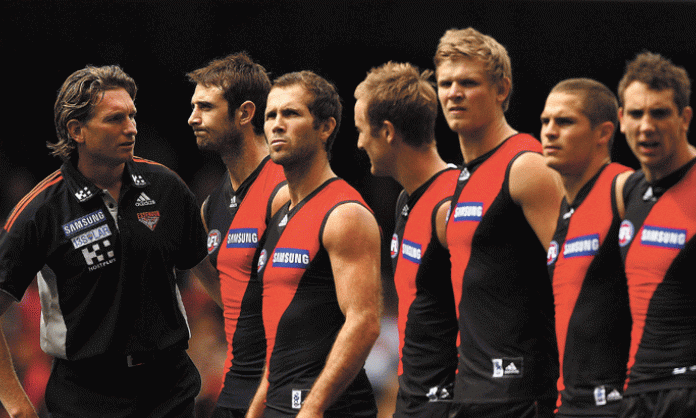Imagine for a moment the following scenario. Employees at a medium sized company are brought before a group of their managers and asked to participate in a trial to increase work productivity. The pressure to participate is immense: the employees are all on contracts, and it is very difficult to get work in the industry. They know they will be out of a job if they don’t perform.
Over the course of six months, they are injected with various substances up to 40 times – sometimes at a private clinic away from the workplace. Some of the substances are experimental, possibly unsafe, and at least one is prohibited under industry guidelines because it has not been approved for use on human beings.
The purpose of the trial is to increase muscle and brain functioning so that the employees are capable of working faster and harder. The workers are being used as guinea pigs in an experiment the only aim of which is to make the company more competitive with its rivals.
If such a scenario unfolded, those managers responsible would be guilty of abuse of power, breach of trust, negligence and violating the rights of their employees. A union with the membership power to do so would shut the work site down to investigate. At the very least, you would expect civil proceedings to be initiated against management and the company. Those responsible would be stood down or sacked. Criminal charges might even be laid.
Not so if the company is the Essendon Football Club.
The Australian Sports Anti-Doping Authority will soon release its findings into the Bombers’ 2012 “supplements program”. The word from AFL chief executive Andrew Demetriou is, “We should just wait and see what’s in the report. Anything other than that is speculation.”
Demetriou is not alone in calling for calm. Prominent journalists, commentators, players, ex-players and administrators seem to agree that the main issue is how many of the substances were banned and what the penalties might be. Club captain and 2012 Brownlow medallist Jobe Watson believes he and others were injected with the anti-obesity drug AOD-9604, which is prohibited under the World Anti-Doping Authority code. This will of course be weighing on the minds of the players subject to the regime, who may face sanctions.
But the bigger issue is not simple legality. The club’s own internal investigation concluded that what took place was “disturbing”. The report noted “a pharmacologically experimental environment never adequately controlled or challenged or documented within the club in the period under review”. Young men have been used as guinea pigs. Whether or not the substances were or are banned, this fact is a disgrace. That for so long no one seemed to be able to say with any reliability what exactly the players had been injected with makes it that much worse.
Club sports scientist Stephen Dank was sacked, and high performance manager Dean Robinson stood down. But those ultimately responsible tried to hold on, first playing dumb then pleading innocence. CEO Ian Robson and chairman David Evans have now resigned (as has Robinson) – but reluctantly. Evans in particular was praised by Demetriou, and his departure labelled a “travesty” by the coach. That man, James Hird, the person most entrusted to oversee the players, remains in his role primarily because he has the backing of the club’s fans, players and the company board.
If he were sacked, there would be open revolt; if he resigned, great mourning. Such loyalty can be explained: Hird, a former Brownlow medallist, is a club hero. He is also a member of the establishment, a blue blood with friends in high places who are clearly protecting and advocating for him. Liberal Party scumbag Ian Hanke is now part of a team hired to defend him.
If the same had unfolded under previous coach Matthew Knights, possibly fans would have demanded the former Richmond captain be removed for putting players at risk. He would not have had top figures from the Liberal Party running to his aid.
Whatever the fans think and whatever the players feel, Hird is the manager responsible for what took place. That he seems to think he can be vindicated at some point shows he is unfit to coach any team.








